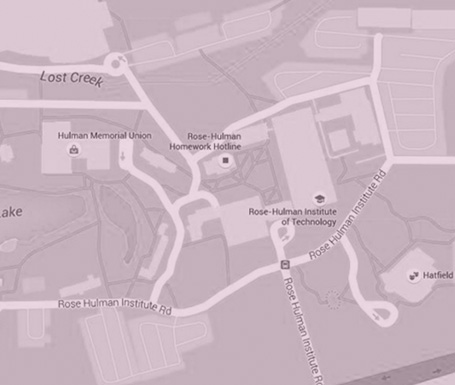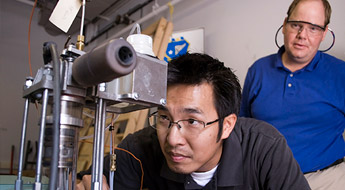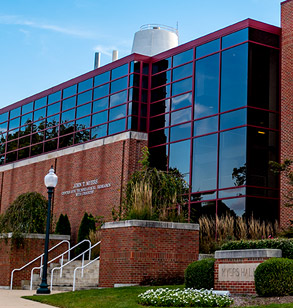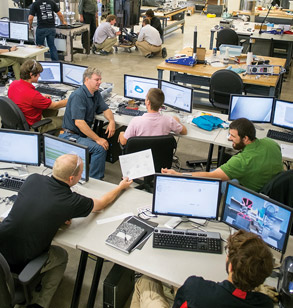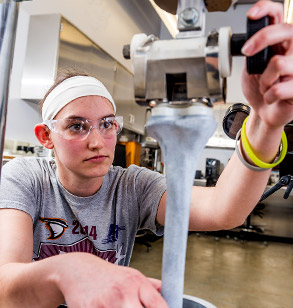Biomedical Engineering combines the mathematical skills, physical science knowledge, and analytical ability of the engineer with the life scientist's knowledge and understanding of biology. Biomedical engineers apply engineering principles to solve medical and biological problems.
The Biomedical Engineering Program at Rose-Hulman Institute of Technology is an interdisciplinary graduate program offered through the Department of Biology and Biomedical Engineering, which offers the Bachelor of Science and the Master of Science degree in Biomedical Engineering. Faculty members from Biology & Biomedical Engineering, Mechanical Engineering, Electrical, and Computer Engineering, Chemistry, Physics, and Optical Engineering are associated with the Biomedical Engineering (BE) program.
The program is intended primarily for degree candidates with a B.S. degree in any engineering discipline. Applications from students with different undergraduate majors are considered for admission on a case-by-case basis with the understanding that substantial additional undergraduate coursework may be required.
The objective of the Master of Science in Biomedical Engineering program is to prepare graduates for early career advancement in the field of Biomedical Engineering by building upon their undergraduate training with advanced coursework and concentrated study of problems and topics relevant to the field.
Master of Science in Biomedical Engineering requirements
36 credit hours of course work
12 credit hours of thesis wor
Students are required to take BE 511 and 3 other 500-level courses with a BE prefix listed in the graduate studies web page. Students are required to submit their Plan of Study for approval by their thesis advisor and their advisory committee.
Inquiries about the M.S. degree program in Biomedical Engineering can be addressed to:
Director of Graduate StudiesDepartment of Biology and Biomedical Engineering
5500 Wabash Avenue
CM148
Terre Haute, IN 47803


